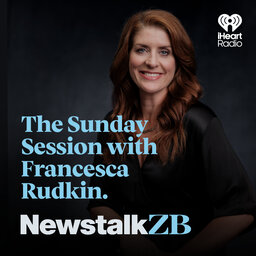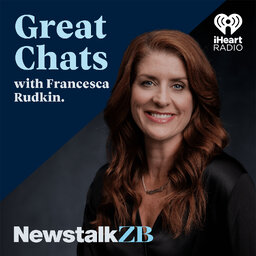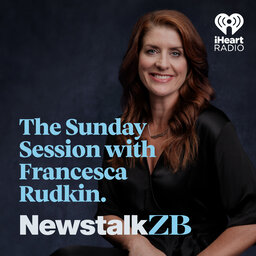Episode 7: Richard Osman, Mea Motu and Miriam Margoyles
In this episode of Great Chats with Francesca Rudkin, British comedian and author Richard Osman talks starting a new novel series and his take on the comedy scene.
Boxer Mea Motu had a massive 2024 - so she joined Francesca to chat her year and what is driving her to succeed.
And the ever delightful and surprising Miriam Margoyles toured New Zealand in early 2024 - and she had a delightful chat with Francesca.
Great Chats with Francesca Rudkin brings you the best interviews from Newstalk ZB's The Sunday Session.
Listen on iHeartRadio or wherever you get your podcasts.
LISTEN ABOVE
In 2 playlist(s)
The Sunday Session with Francesca Rudkin
News, opinion, analysis, lifestyle and entertainment – we’ve got your Sunday morning listening cover…Social links
Follow podcast
Recent clips

Best of 2025: Dr Timoti Te Moke opens up about upbringing on the Sunday Session with Francesca Rudkin
14:43

Best of 2025: Helena Bonham Carter talks career and Four Letters of Love on the Sunday Session with Francesca Rudkin
11:31

Mike Van de Elzen: Christmas Strawberry Sponge
05:30
 The Sunday Session with Francesca Rudkin
The Sunday Session with Francesca Rudkin
